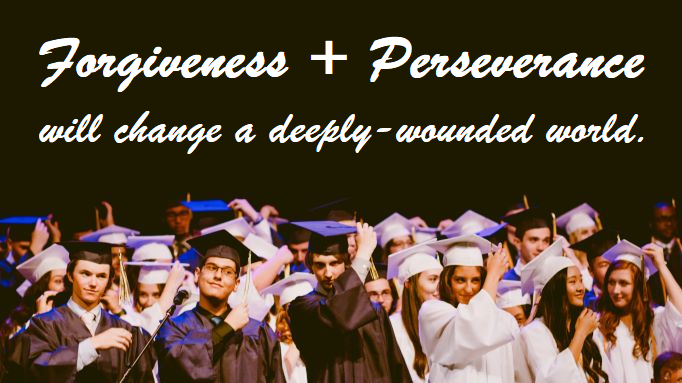Perseverance
A Forgotten History of Polish People’s Forgiveness After Auschwitz
This is a guest blog post from Edward Reid, who runs the “Polish History” site on Facebook. The essay, copied in full here with Mr. Reid’s permission, shows the forgiving nature of the Polish people after Rudolf Höss brutalized so many in Auschwitz.
Facebook page – April 16, 2025
The essay is as follows:

Image by Karolina Grabowska, Pexels.com
In 1947, Rudolf Höss, commandant of German KL Auschwitz in the years 1940-1943, was sentenced to death by the Supreme National Tribunal in Poland. Two weeks later, on 16 April, he was hanged next to the crematorium of the former concentration camp.
Rudolf Höss did not fear death. What he feared was torture, which he believed was inevitable at the hands of his Polish captors. After all, Auschwitz had been located in German-occupied Poland, and it was the Polish people who had suffered so terribly under his command.
What he encountered instead left him stunned.
He was not met with hatred or violence, but with decency and restraint. “I have to confess that I never would have expected to be treated so decently and so kindly in a Polish prison,” he later wrote. That unexpected mercy opened something within him. Several of the Polish guards, themselves former prisoners of Auschwitz, quietly showed him the tattoos burned into their arms. Rather than seek revenge, they treated him with dignity.
It was an act that brought him shame. If those he had helped torment could offer him humanity, then perhaps, he began to wonder, God might offer him mercy as well. Apathy gave way to guilt. Recognition replaced denial. He began to grasp the weight of what he had done.
For the first time, his soul responded to a flicker of love. The ideology he had once followed so blindly had taught him that Poles were inferior, little more than cattle. But now, through their compassion, he saw clearly the humanity of those he had dehumanized. And in that realization, he began to understand the true gravity of his crimes.“In the solitude of my prison cell, I have come to the bitter recognition that I have sinned gravely against humanity,” he wrote. “I caused unspeakable suffering for the Polish people in particular. I am to pay for this with my life. May the Lord God forgive one day what I have done. I ask the Polish people for forgiveness.”
By all accounts, his repentance appeared genuine. On April 4, 1947, which was Good Friday that year, Höss asked to make a confession. The prison guards struggled to find a priest who spoke fluent German. That is when Höss remembered Father Władysław Lohn, a Jesuit he had once saved from execution. The guards located him in Łagiewniki, Poland, where he was then serving as chaplain at the Shrine of Divine Mercy. Father Lohn heard his confession on the Thursday of Easter week. The next day, he gave him Holy Communion and Viaticum.
Witnesses said that as Höss knelt in his prison cell, he appeared like a small boy.
The man who had once been trained to suppress all weakness now wept openly.
Five days later, on April 16, 1947, as the noose was placed around his neck at Auschwitz, Father Tadeusz Zaremba stood beside him and recited the prayers for the dying.
Whether or not he deserved forgiveness is something each person must decide for themselves. But the crimes committed against the Polish people must never be forgotten.
And neither should the quiet strength of those who, even in the face of unimaginable suffering, chose mercy. This is also why the Polish people, despite their profound heroism and the scale of their suffering were left behind in the telling of history. They did not turn their pain into politics or profit. They did not build monuments to themselves and demand all the world bow to their wounds. They endured in silence behind the Iron Curtain. Many showed mercy when they had every right to hate. And in doing so, they were forgotten by a world that rewards those who shout the loudest, not those who suffer with dignity.
But the truth remains. It was not only the victims who showed humanity – it was the forgotten Polish guards, the priests, the villagers, the mothers, the resistance fighters. They gave the world a quiet, sacred kind of courage.
The kind that history has yet to fully honor…
The Role of Emotional Validation in Apologies and Forgiveness
This blog post is by Dr. Suzanne Freedman, a Contributing Writer and Researcher to the IFI. She is a Professor in the Educational Psychology department at the University of Northern Iowa in Cedar Falls, Iowa.
 I did something to hurt my daughter the other day. It was unintentional, but she was angry and hurt, and she had a right to her feelings. When she shared her emotions with me, I realized that my actions were wrong. I felt bad about what I had done; I apologized and assured her that it would not happen again. However, I apologized immediately after she expressed her anger, while she was still upset. Fortunately, through my study of forgiveness and the psychological process of forgiving for over 30 years, I understand that forgiveness is not instantaneous.
I did something to hurt my daughter the other day. It was unintentional, but she was angry and hurt, and she had a right to her feelings. When she shared her emotions with me, I realized that my actions were wrong. I felt bad about what I had done; I apologized and assured her that it would not happen again. However, I apologized immediately after she expressed her anger, while she was still upset. Fortunately, through my study of forgiveness and the psychological process of forgiving for over 30 years, I understand that forgiveness is not instantaneous.
Although I wanted my daughter’s forgiveness, I knew expecting it right away was neither fair nor realistic. People often apologize and expect immediate absolution before the injured has processed their emotions. Many individuals who say, “I forgive you” upon receiving an apology later discover they do not feel that forgiveness in their hearts. This is because genuine healing requires time, not just words.
One of the most overlooked aspects of apologizing is allowing the hurt people time to work through their emotions. Expecting immediate forgiveness disregards the necessary emotional processing that follows a deep, personal, and unfair injury (Smedes, 1996). Emotional reactions to conflict and personal injury are normal and natural, and those who have been hurt need time to feel and express their emotions. As a student in my college class on interpersonal relationships stated, “Forgiveness is not immediate—you cannot just say ‘I forgive you’ and expect everything to be better. Especially if saying it is not true—saying it just to stop talking about it does not make it better for you or them. Yet, I see it all the time, and people wonder why their relationships/friendships are never the same. There are steps you can take to forgive someone, even if you never forget what happened or your relationship isn’t the same” (personal communication, March 2025).
A sincere apology involves emotional validation—the acknowledgment of another person’s feelings as real and important. Research shows that interpersonal hurt often evokes a mix of emotions, including resentment, anger, and/or sadness (Freedman & Zarifikar, 2016). If these emotions are dismissed—such as when an offender urges the injured to “move on” or “let it go”—it can lead to emotional suppression or denial rather than genuine healing (Gregory, 2025). Admitting and expressing feelings is a critical step before forgiveness can occur, as emphasized in the first phase of Enright’s (2019) process model of interpersonal forgiveness. Forgiveness is often criticized because individuals fail to recognize this critical step in the forgiveness process and mistakenly believe that forgiveness involves the suppression or denial of one’s emotions (Freedman & Zarifkar, 2016).
I knew that allowing my daughter to feel, express, and process her emotions was just as important as my apology. By validating her anger rather than dismissing it or pushing her toward forgiveness, I communicated that her pain mattered. This act of validation fosters an environment where forgiveness can develop naturally over time. Parents often struggle when they see their children in pain and may react by suggesting they quickly move past the hurt. However, individuals need time to experience and process their emotions before they are ready to move forward. According to Damour (2020), when teens can sit with their feelings and then move beyond them, they develop resilience, realizing they can endure difficult emotions.
Pressuring someone to forgive before they are ready can lead to resentment, emotional dissonance, and distrust in the forgiveness process (Worthington, 2006). Instead of fostering healing, forced forgiveness creates obligation, often resulting in superficial reconciliation (Freedman & Chang, 2010). My college students frequently report that they remember being told in childhood to forgive after receiving a forced apology, despite still feeling hurt. Similarly, offenders are often encouraged to apologize before they truly feel remorse. Genuine forgiveness and apology cannot be demanded—it must arise from within.
In my situation, if I had expected my daughter to forgive me immediately, she might have felt pressured rather than supported. This could have led to resentment or suppression of her emotions instead of real healing. By giving her the space she needed, I conveyed that her emotions were valid. As Damour (2020) explains, psychological health is not about avoiding discomfort but about experiencing the appropriate emotion at the right time and developing the capacity to endure it.
Conclusion
Forgiveness is a process, not a transaction. While an apology is a critical step in making amends, it does not guarantee immediate and automatic forgiveness. Emotional validation plays an essential role in healing by acknowledging the injured person’s emotions rather than rushing the person toward a resolution. Additionally, while an apology is not necessary for forgiveness to occur, it is often important for reconciliation and can make forgiving easier. However, requiring an apology before forgiving can leave the injured trapped in resentment, waiting for an apology that may never come (Freedman, 1998).
My experience with my daughter reinforced a fundamental truth—forgiveness cannot be rushed or forced. Healing requires time, understanding, and the space to process emotions fully. By allowing my daughter to work through her pain without pressure, I honored her emotional experience and our relationship, fostering the conditions for true forgiveness to emerge.
References
Damour, L. (2020) Helping teens make room for uncomfortable emotions. New York Times, April 21, https://www.nytimes.com/2020/04/21/well/family/coronavirus-teenagers-uncomfortable-emotions.html
Enright, R. D. (2019). Forgiveness is a choice: A step-by-step process for resolving anger and restoring hope. American Psychological Association.
Freedman, S. (1998). Forgiveness and reconciliation: The importance of understanding how they differ. Counseling and Values, 42(3), 200–216. https://doi.org/10.1002/j.2161-007X.1998.tb00426.x
Freedman, S., & Chang, W.-C. R. (2010). An analysis of a sample of the general population’s understanding of forgiveness: Implications for mental health counselors. Journal of Mental Health Counseling, 32(1), 5-34. https://doi.org/10.17744/mehc.32.1.a0x246r8l6025053
Freedman, S., & Zarifikar, T. (2016). The psychology of interpersonal forgiveness and guidelines for forgiveness therapy: What therapists need to know to help their clients forgive. Spirituality in Clinical Practice, 3(1), 45-58. https://doi.org/10.1037/scp0000087
Gregory, A. A. (2025). You don’t need to forgive: Trauma recovery on your own terms. Broadleaf Books.
Smedes, L. B. (1996). The art of forgiving: When you need to forgive and don’t know how. Penguin Random House.
Worthington, E. L., Jr. (2006). Forgiveness and reconciliation: Theory and application. Routledge/Taylor & Francis Group.
The Clash between Modern Western Culture and the Moral Virtue of Forgiveness
When surfing the Internet I sometimes run into ads for quick weight loss. Those ads run something like this: A guy, who may be ramped up on steroids, has his shirt off and he eagerly bites into a high calorie meal. He then says that he has a physical workout regimen that allows him to exercise a few days a week and retain a muscular physique. The exercise routine, for example, consists of about 5 push-ups, 8 sit-ups, some front lunges, a few jumping jacks, and then hit the showers because you are……..done.
In other ads, there are “before” and “after” photos, with the message that pill X will burn excess stomach cells overnight as you sleep…….and then presto! You have a new body.
The messages from these ubiquitous ads are these: Physical fitness is easy. Buy my fitness program or the pills I sell, and you will have gain without the pain.
What makes these ads almost humorous is the contrast between reality and fantasy, between what is needed for physical fitness or weight loss and what is offered. It is as if the striving and effort and perseverance are no longer necessary.

(Image by Rawpixel.com)
Such messages of gain-without-pain now are pervading the Internet for forgiveness. Take a look for yourself on the Internet. As you search for ways to forgive you will be met with advice to forgive, for example, in four easy steps. Learn to forgive in seven easy steps. Take your pick. The advice tends to range from about 2 to 9 sessions of psychological techniques…….and then presto! You have a new outlook on life and toward the one who hurt you.
Now, there is nothing wrong with a few steps to start a physical fitness program, as you get familiar once again with what a push-up is. In a similar way, there is nothing wrong with a few brief psychological techniques to introduce you to what it may be like to forgive those who hurt you deeply.
Yet, if you want true physical fitness, if you want true and deep forgiving, you will need to have the strong and good will to start, the rationality to know what you are facing, then practice, then persevere, then develop a love of the workout (physical or forgiveness workout) so that you grow in maturity toward either kind of workout. Both the achievement of physical fitness and forgiveness fitness require the exercise gym and the forgiveness gym, respectively.
When you are deeply hurt by others, when your heart is hurting, there is no such thing as the forgiveness pill. There is no such thing as the easy way. When others make you suffer from their unjust treatment, the way out is a different kind of suffering, which is growth in the heroic moral virtue of forgiveness. This new suffering is very different from the original suffering from unjust treatment because the forgiveness treatment leads to deep healing so that you can move on well with your life. The suffering from the effects of grave injustice, if you do not address these effects, may never end. The suffering from working on forgiving eventually ends. I want you to see the big difference between the two kinds of suffering. Only one of these offers the challenge of a new start in life as you become forgivingly fit.
Let’s hit the forgiveness gym, when deeply hurt by others, and start becoming forgivingly fit.

A Tribute to Our Director
For those of you who have read the International Forgiveness Institute’s newsletters, news items, blogs, and other features on our website, you have our long-time Director, Dennis Blang, to thank for that. He has tirelessly shown a love for the moral virtue of forgiveness. He has long shown the moral virtue of perseverance as he has worked to constantly improve the website for the sake of those who want to know more about forgiveness and to make a better world.
It was Mr. Blang who contracted with web developers to constantly improve the site. Over the years he added the Research page, the forgiveness curriculum page, the videos from three different international conferences, the research scales page with free forgiveness instruments for all who are interested, and much more. There are close to 3,000 entries in what is the most comprehensive forgiveness website in the virtual world. For his efforts, this website was awarded The Best Websites of 2022 by The Good Estate, a multi-thematic review website where users can find high quality information about all kinds of digital and physical products. TheGoodEstate is a project of Global Commerce Media.
forgiveness curriculum page, the videos from three different international conferences, the research scales page with free forgiveness instruments for all who are interested, and much more. There are close to 3,000 entries in what is the most comprehensive forgiveness website in the virtual world. For his efforts, this website was awarded The Best Websites of 2022 by The Good Estate, a multi-thematic review website where users can find high quality information about all kinds of digital and physical products. TheGoodEstate is a project of Global Commerce Media.
It was Mr. Blang who oversaw the development of our online education course, Forgiveness Therapy, and encouraged students as they moved forward in the book. I always was so impressed with the care he would take with each student, answering questions and clarifying correct answers when a student would inquire about the right answer.
I have been amazed at his breadth of knowledge about the state-of-the-art in the world regarding forgiveness. He frequently would pass news items and journal articles my way, asking if I had seen them. In the vast majority of cases, these were hidden gems worthy of our time and he was the first to find them, write about them, and then post information on them for you, the readers.
His care for the donors, who so wonderfully support the spread of forgiveness across the world, shows his love for forgiveness and his deep respect and appreciation for those who give of their own provisions for good. His emails to them always are sincere, supportive, and special.
His care for those who have taken the time to write to us is equally noteworthy. Those emails come to us from all over the world. Some people write in because they are hurting and need care. Mr. Blang has taken the time to care for them as he has suggested resources and professionals who can aid each one in their healing. He has treated each person as special, unique, and irreplaceable, giving the time and attention that each one needs. Only someone who has a love for forgiveness and a love for hurting people could sustain such an effort. Thank you for your caring, Mr. Blang.
Dennis Blang has been a gift to the world of forgiveness and for that I am deeply grateful. He now will be retiring, opening up new chapters in his life with his wife, Carol. We at the International Forgiveness Institute want to thank Mr. Blang for being a champion of forgiveness. Without him, we would not be as far down the road of forgiveness as we are now. Thank you so very much, Mr. Blang. Your work has been invaluable and we appreciate you perhaps even more than you realize.
![]()
Perseverance as the Missing Piece to Family, School, and Community Forgiveness
Having studied the psychology of forgiveness since 1985 and having helped plant forgiveness education in schools since 2002, I have come to realize that there is another moral virtue that needs to exist alongside forgiving if forgiveness is to mature in minds, hearts, and groups. That virtue is perseverance, or the willed decision and action to keep going despite challenges and to not get distracted by other issues. In the ethical treatise, Virtues and Vices (attributed to Aristotle, but possibly written by one of his followers), the virtue of perseverance or endurance is said to exist alongside the virtue of courage and daring. I would add that perseverance will be a moral virtue as long as it is connected to both wisdom and justice (as well as courage) because it is good only if the goal to which people are dedicating a good part of their lives is fair and reasonable. Persevering in bank robbery, for example, is vice not virtuous.
Perseverance is rarely discussed in modern society as we play with our gadgets and move from one forum to another. This kind of quick movement is part of what the 17th century French philosopher, Blaise Pascal, in his masterful work, Pensées, refers to as diversion. He challenged readers by saying that most people cannot endure even one hour alone in their own room without seeking new diversions. If this was the case over four centuries ago, how much more might diversion be weakening our ability to engage in the moral virtue of perseverance now?

In an earlier blog, I related an interaction with Mr. Brian McParland of St. Vincent de Paul Primary School in Belfast, Northern Ireland in the fall semester of 2002. Upon approving forgiveness education in his school, he told me that I would last only 3 years at this task because that is all the time anyone ever seems to give to new classroom initiatives. In other words, people do not persevere. I have seen the same in local groups that start forgiveness education programs with adults only to have them fade over time. Yet, as Aristotle reminds us, and challenges us, it takes time to grow deeply in the moral virtues. We do not become proficient in any moral virtue by giving it a try for a little while any more than we become physically fit by hitting the gym for a month and then going back to the couch and the potato chips. It takes time and effort to become forgivingly fit. It takes time to grow in the moral virtue of perseverance.
So, it seems to me that the first step in growing intra-personally in forgiveness, in aiding families and schools and local community organizations to grow in forgiveness is to openly and boldly and persistently discuss perseverance and the serious challenge all people face as they say, “Let’s hit the forgiveness gym!” Without perseverance, we lose our forgiving fitness very soon.
How much perseverance do we need to change the world? It seems to me that we need to introduce students to forgiveness, without forcing them to forgive, from age 4 to age 18. It seems to me that we need two generations, about 40 years, of forgiveness in communities to change those communities and to change community-to-community conflicts, even brutal conflicts that seem at present to have no end in sight. Forty years? Forty years when there will be new distractions, new shiny diversions? Yes, and it is the teamwork of forgiveness and perseverance, and leaders who will take over for other leaders, that will win in the peace movement. This combination of forgiveness and perseverance never has been tried anywhere in the world at any time in human history. It is time.
With perseverance, we might just be able to bring forgiveness for good to a deeply wounded world. Long live perseverance! Long live forgiveness!
![]()




